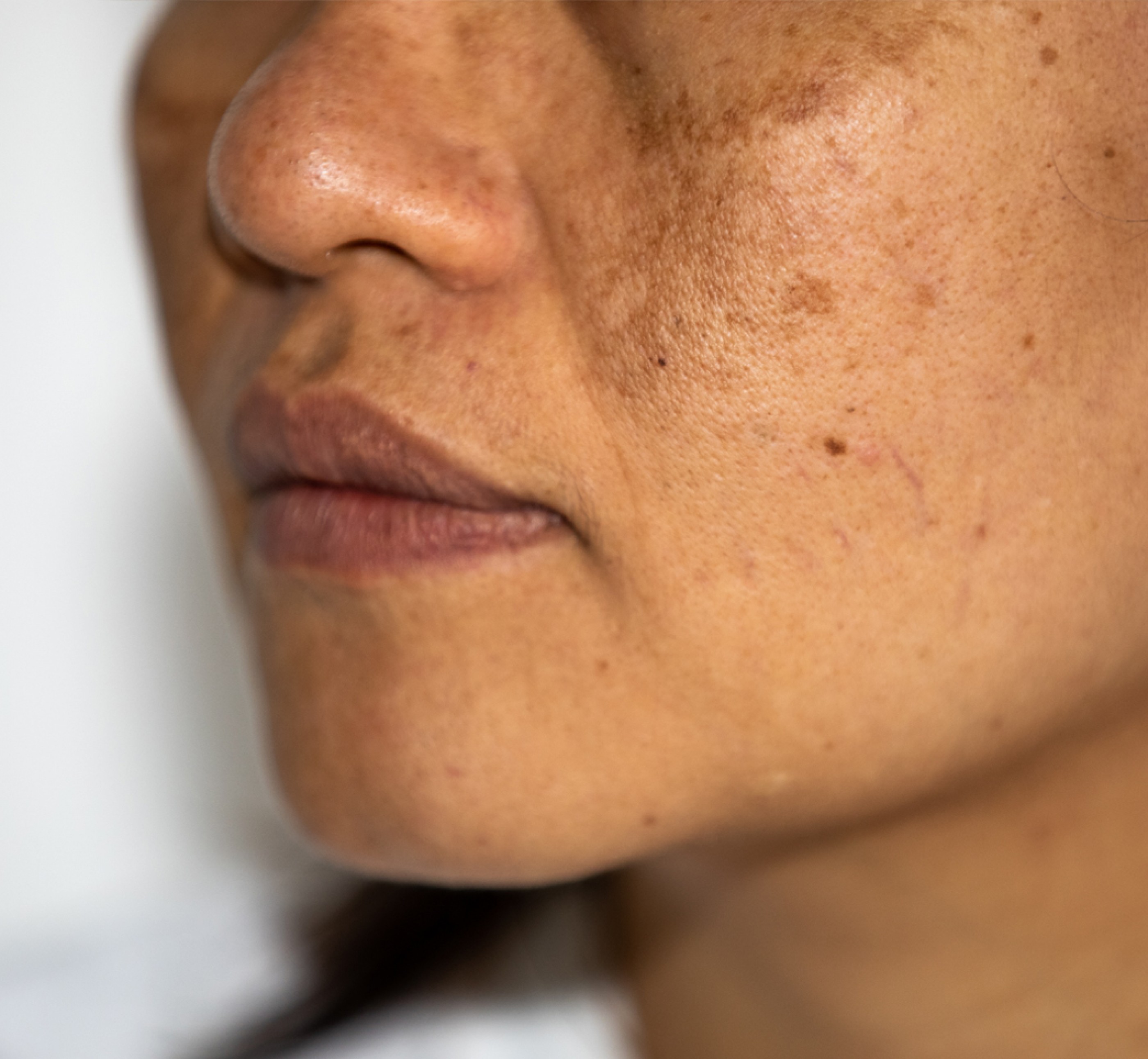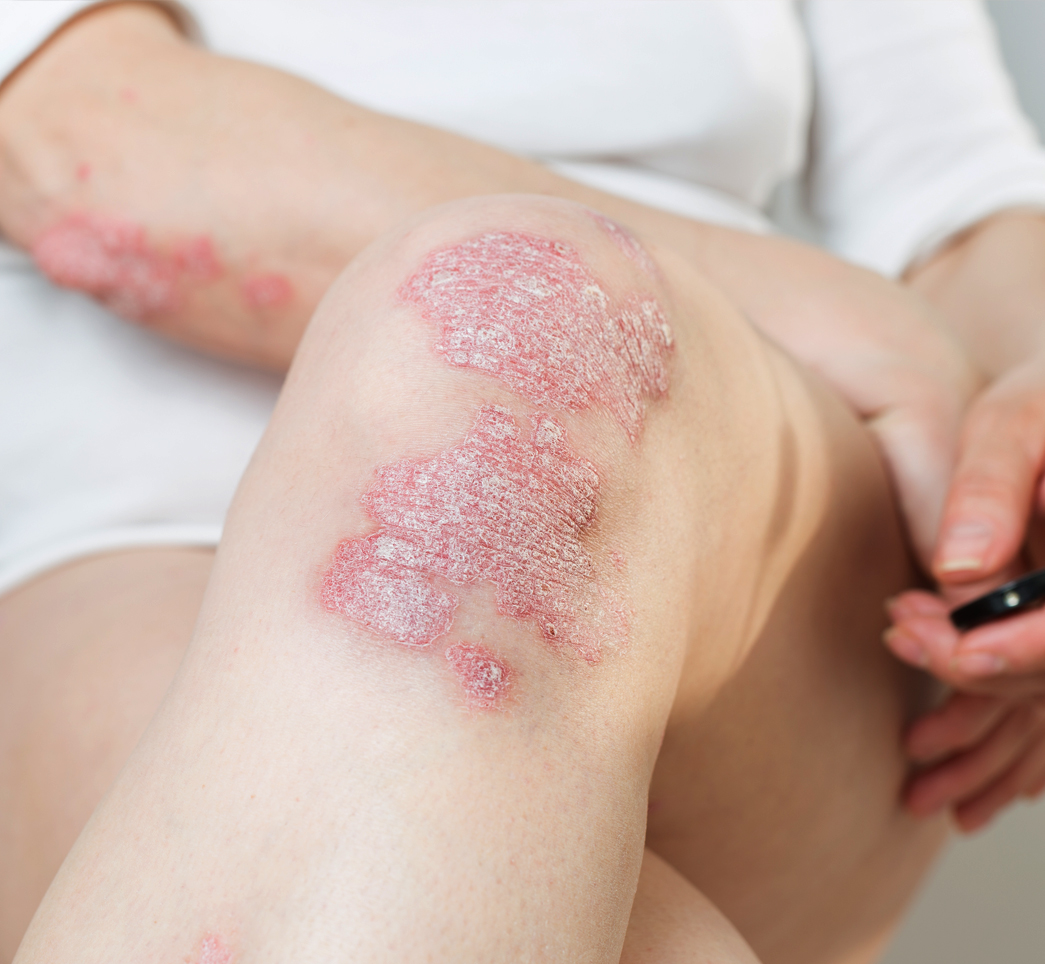With summer right around the corner, all of us have fond memories of laying on a beach and basking in the sun. While the sun increases vitamin D in our body and raises our endorphins, or our happy hormones, it can also cause sunburn and quickly ruin that perfect beach day. I’m sure I’m not alone in reliving the memory of my first horrible sunburn. The blisters and the agony that quickly ruin that beach vacation (the Florida sun will get you every time).
May is the National Skin Cancer and Melanoma Awareness Month and it is only fitting that we focus this blog on educating about the basics of skin cancer. There are three common types of skin cancers: Basal cell carcinoma, Squamous cell carcinoma, and Melanoma. Each skin cancer has different subtypes and treatments vary accordingly. While skin cancers are, common and becoming more common daily they are highly treatable especially if caught early!
Early detection can save lives! Let me show you how to spot and identify them!
Basal Cell Carcinoma is usually manageable
How common? The first and most common type of skin cancer is Basal Cell Carcinoma.
Cause? This type of skin cancer typically arises from chronic sun exposure. Genetics can contribute and some immune suppressants can increase the chance of this skin cancer.
Location? High-risk locations on the body are typically the face (especially the nose!), the shoulders, back, and chest.
Appearance? Basal cell carcinoma can be early and appear as non-specific as a bright pink patch, while other presentations can present like a shiny pearly bump that bleeds easily.
Dismissed as what? Dry patch, acne lesion, insect bite, but never healing.
Behavior? This form of skin cancer thankfully is very slow-growing and has a low risk of metastasis, however, it is important to seek treatment promptly to ensure that there is no chance for growth or spreading to occur.
Treatments? There are treatment options and they vary depending on stage and subtype.
Squamous Cell Carcinoma can be tricky
How common? The second most common type of skin cancer is Squamous Cell Carcinoma.
Cause? This type of skin cancer also typically arises secondary to chronic sun exposure, however, there are more rare subtypes that can arise from viruses such as the wart or HPV virus. They can also appear with a sort of immune-suppressive treatment. Genetic makeup always can contribute.
Location? High-risk locations for this type of skin cancer are like that of basal cell carcinoma.
Appearance? Squamous cell carcinoma can present as dry pink scaly patches or even present like quick-growing raised painful bumps.
Dismissed as what? Warts, pink dry patches that won’t resolve over time.
Behavior? Unlike basal cell carcinoma, this subtype of skin cancer can arise and grow quickly. I can personally tell you I have had patients who are diligent with their skin exams present to me with concerns of a “brand new bump, that arose practically overnight”.
Treatments? Squamous cell carcinoma if left untreated has about a 30% chance of metastasis and some subtypes are more aggressive than others. There are many treatment options available ranging from topical chemotherapies to excisions such as Mohs Surgery.
There are cutting-edge treatments for extensive squamous cell carcinoma.
Now that we have discussed the two forms of Non-Melanoma skin cancers we will switch our focus to Melanoma!
Melanoma is everyone’s nightmare
How common? Melanoma is the type of skin cancer most people have heard about. Melanoma is thankfully the least common and is by far the most aggressive type of skin cancer.
Cause? Melanoma typically arises from abnormal pigment-making cells in the body called melanocytes. Most melanomas typically arise on their own or “de novo”. Melanomas can also develop from an established nevus or “mole” on the body, however, this is typically more uncommon. Chronic sun exposure and tanning bed usage increase your risk of melanoma. There are genetic forms that run in families.
Location? Melanomas can arise in any location on the body! They are more common on the legs in women and on the back in men. Melanomas can arise in unusual locations such as on the back of your eyes and even on the genitalia. It is important to have a dilated eye exam annually and to see your OBGYN or urologist as well once yearly.
Dismissed as what? Two-toned moles, more prominent sun patch, or even a seborrheic keratosis (which is another common benign type of skin growth)
Behavior? Melanomas come in many forms and I have personally seen large irregular patches with multiple shades of brown, jet black raised lesions and even flesh toned or pink bumps biopsied come back with a diagnosis of melanoma.
Treatments? There is hope when it comes to melanoma! When melanoma is caught early or in the in situ stages a surgical excision may be all you need to fully remove the cancer. When melanoma is more established in the skin some patients undergo screening through scans of the body or lymph node testing to determine if metastasis has occurred.
THERE IS HOPE! Thankfully in most cases, melanoma is caught in the early stages and is cleared through excision only. Research around melanoma has drastically expanded in the last few years and thankfully there are many options to treat metastatic melanoma, including targeted immune therapies, that have prolonged the lives of many patients.
There are other less common skin cancers
Cancers of the skin are not limited to the ones mentioned above the skin is a window to every internal organ, any internal cancer can manifest itself on the skin. Like Dr. Timani says at least the skin gives you a chance, other organs don’t.
Let me teach you about ABCDEs of Dermatology
In dermatology, we use the ABCDEs of melanoma to evaluate for concerning or suspicious skin lesions.
A for an asymmetrical lesion that is not a perfect circle or oval.
B for a lesion that has a jagged or irregular border.
C for color, multiple shades of color can be a concerning finding most moles on the body should be one color.
D for diameter greater than 6mm, a lesion that is larger than the size of a typical pencil eraser.
E for evolution or a lesion that has changed over time. Dr Timani prefers to call that another C and we put so much emphasis on this letter in our practice.
Ugly duckling? What does that mean?
Dr. Timani’s favorite word! During a Full Body Skin Exam to identify lesions that can be concerning for skin cancer and often identify them as “Ugly Ducklings”. We all have unique set of moles. They aren’t always perfect. And we can’t biopsy every unusual mole. So we look for the ugly duckling, the funny one that stands out.
Most skin cancers are highly treatable if caught early.
Treatment options for skin cancer are vast and how you treat your skin now will make a difference! There are multiple factors we consider when picking treatment options for skin cancers such as: the subtype, the location on the body, and the size. Very early skin cancers such as Superficial Basal Cell Carcinoma and Squamous Cell Carcinoma in Situ can be treated with surgical or non-surgical treatment options. Non-surgical treatment options can include a topical chemotherapy cream or a procedure where we use a tool to scrape away the atypical cells and burn the base, often we combine both treatment options.
More established skin cancers and melanomas require surgical intervention.
In dermatology, many skin cancers arise in delicate areas of the body such as the face, ears, or hands. For these locations, we typically recommend Mohs Micrographic Surgery.
This is a very special type of surgery where our goal is to clear cancer, while also taking as little tissue as possible. This type of surgery is performed in-office where we make slides while the patient is there to determine if the margins are clear. If they are not we continue to remove small samples until the cancer is clear. Mohs surgery has a very high cure rate and most closures are done in-office not requiring the assistance of a plastic surgeon.
You can’t undo the past; however, you can be proactive now!
Did you know protecting your skin in your first 18 years can reduce your risk of Skin Cancer by up to 78%! And while skin cancer may sound scary it is avoidable.
• Sunscreen is very important and reapplying matters.
• Zinc and titanium oxide sunscreens provide a physical block between your skin and the harmful UV rays and have not been leaked to the controversial cancerous chemicals in most chemical-based sunscreens.
• It is important to reapply liberally and UV clothing can also be utilized to avoid the sun.
• Tanning beds are awful and it still amazes me that people use them.
• There are fabulous self-tanners available in all different forms.
• Every sunburn builds upon itself increasing your risk of skin cancer, so what you do and how you protect yourself daily matters and may protect you from skin cancer or even melanoma down the line.
• Self-exams are crucial and take pictures as we do.
You are not alone, we are here for you.
Our team at Johns Creek Dermatology and Springs dermatology are here for you.
The rates of skin cancers are on the rise and thankfully the survival rate is high if detected early! This month is the ideal month to get serious about your skin health and to schedule a full body check for skin cancer screening. I hope these tools will help guide you and make you feel more in control of your skin health. This summer lather up in sunscreen and don’t forget your ABCDEs. And if you are ever worried or notice something suspicious on your skin know all our staff is happy to assist you and help you get the treatment you need.













